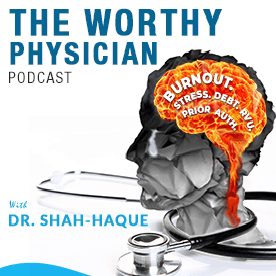Trauma manifests in various ways.
Trauma manifests in various ways, and it is essential to recognize and understand these manifestations in order to provide appropriate support and care for those who have experienced trauma. The podcast episode sheds light on the different ways trauma can present itself, ranging from anxiety and depression to perfectionism and hyper-vigilance.
One of the key points made in the podcast is that trauma is not solely defined by catastrophic events or extreme experiences. It can also result from the absence of positive experiences or the lack of nurturing and attachment during childhood. This highlights the importance of considering a broad range of factors when assessing and addressing trauma.
Trauma can have an effect on individuals in the workplace. Rosie discussed her own experience of feeling ashamed and constantly seeking approval due to their trauma response. This highlights how trauma can influence one's behavior, leading to perfectionistic tendencies, burnout, and a need for control. By understanding these manifestations, employers and colleagues can provide a supportive work environment that recognizes and accommodates the impact of trauma.
Furthermore, the concept of moral injury, which occurs when one's personal values and beliefs are contradicted by their work environment can have a profound impact on an individual's mental and emotional well-being. Recognizing the connection between trauma and moral injury is crucial in addressing the psychological and emotional impact of workplace environments that lack equity, diversity, and inclusion. While efforts are often focused on systemic changes and practical solutions, it is crucial to acknowledge and address the individual experiences and trauma that result from these larger issues. By providing support and resources for those affected, we can mitigate the long-term effects of trauma and promote healing.
In conclusion, trauma manifests in various ways, and it is vital to recognize and understand these manifestations in order to provide appropriate support and care. The podcast episode highlights the importance of recognizing trauma's impact, particularly in the workplace and in relation to moral injury. By fostering greater awareness and understanding of trauma, individuals can receive the support they need and break the stigma associated with seeking help for mental health issues.
Rosie Yeung is a Certified Trauma Recovery Coach, Certified HR Leader, and Chartered Professional Accountant, with over 20 years of leadership experience. She coaches at the intersection of social justice, mental health, and career growth, a unique methodology she calls Un-Executive Coaching™.
Rosie supports equity and inclusion by providing culturally relevant, trauma-informed coaching based on neuroscience, somatics, and psychology. She accepts clients from all backgrounds and identities, and specializes in helping Asian and racialized women break free from false perceptions and systemic limitations.
As a Chinese-Canadian, immigrant, cis-het woman living with mental illness and recovering from trauma, Rosie wears intersecting lenses of trauma care, decolonization, anti-racism, and anti-oppression. She leverages ALL her skills and lived experiences to help you Change Your Lens, See Your Worth, and Be Your Self!
You’re welcome to contact her on LinkedIn, Instagram or her website: www.changinglenses.ca.



